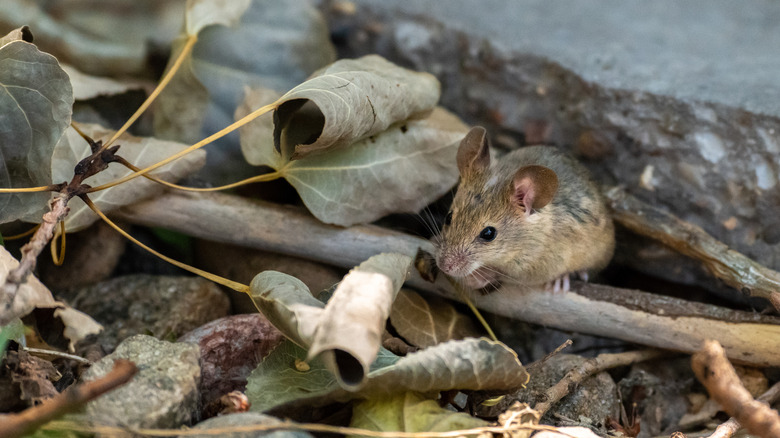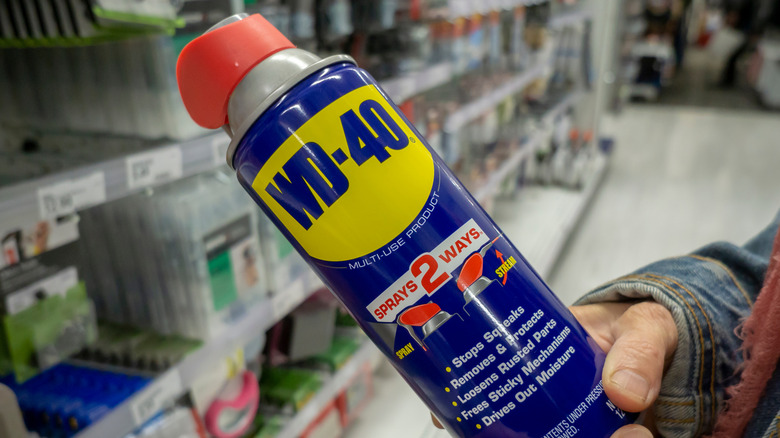The WD-40 Trick That'll Keep Pesky Rodents Out Of Your Yard
We may receive a commission on purchases made from links.
Whether they're exploring your garbage cans or camping out in your woodpile, mice and rats can wreak havoc in your yard. They can also spread a variety of diseases, including Mpox and leptospirosis. Rodents tend to leave droppings and gnaw marks where they spend a lot of time, so if you see either of these signs, it's time to create an action plan. That plan can center on a simple can of WD-40 multi-use spray, which will discourage rodents from making your property their home. Though this product is designed for household tools and automotive parts, it has many other applications. For instance, WD-40 can repel wasps and remove rust from sports gear. In the case of mice and rats, WD-40 annoys them with its strong scent, which tells them to run far away.
Spraying WD-40 around the exteriors of garages, sheds, and other buildings can keep rodents from entering. If termites are an issue where you live, applying WD-40 may keep them at bay, too. You can also spray this product under gutters, near trash cans, and in other places where rats and mice might want to hang out. Reapply WD-40 weekly, making sure to coat cracks and crevices thoroughly, as rodents like to squeeze into tight spaces. Keep in mind that this approach is preventive. If you have an active rodent infestation, WD-40 probably won't evict all of your unwanted tenants. Instead, you'll need to purchase traps or call an exterminator.
Staying safe when using WD-40
WD-40 contains several substances that can harm people and animals, including mineral oil and petroleum-based ingredients. Though it's not guaranteed to kill rodents, it might, and it could hurt your dog or cat if they consume it. A pet that ingests WD-40 may vomit, have diarrhea, or develop breathing problems. If you are treating your yard with WD-40, be sure to keep your animal companions out of any areas where they could come into contact with it.
You should also keep WD-40 away from children since it can be toxic if ingested or inhaled. Since it comes in a pressurized can, make sure it's not stored or sprayed near flames or other heat sources either. If you suspect that someone may have swallowed or breathed in WD-40, contact your local poison control center.
Need to deter rodents from an area that kids frequent? Choose a nontoxic alternative. Garlic is good at repelling mice and other garden pests including aphids, beetles, and flies. Crush a half-dozen garlic cloves, soak them in hot water for 20 minutes, and place the liquid in a spray bottle after it cools. Afterward, spritz this nontoxic pest deterrent on areas you'd like to keep rodent-free.

